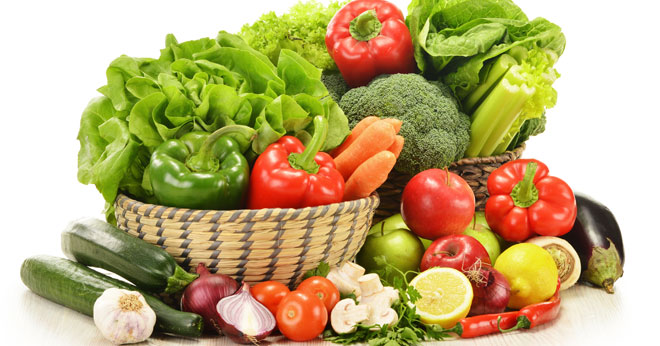Cancer is a complex, life-threatening condition which can develop in almost any organ or tissue in the body, generally triggered by an accumulation of damage to DNA – the molecular ‘instruction manual’ that tells our cells what to do. Genetic mutation causes cells to become cancerous and to grow rapidly beyond their usual boundaries, invading adjoining parts of the body. Chronic inflammation that persists over long periods of time is also thought to increase the risk of cancer.
The good news is that by minimising exposure to the things that damage DNA, and by reducing inflammation, you do have some control over your cancer risk: according to the Cancer Association of South Africa (CANSA), around 80 per cent of cancer cases could be reduced by simple, easily-achievable lifestyle changes. Avoiding tobacco products and getting regular exercise are important, and so of course is diet. Good nutrition supports your entire body, and can even positively influence your genes. Research indicates that a well-balanced diet, emphasizing fruits,vegetables, whole grains and pulses, may prevent as many as one third of cancer deaths.
The body’s cells can be damaged by a build-up of free radicals, which are natural by-products of on-going biochemical reactions produced during metabolism and by our immune systems, and are also increasingly present in the environment. If our bodies can’t repair the damage, those cells are more likely to develop cancer. Foods rich in antioxidants can help protect cells and facilitate repair, while fruits and vegetables, which contain cancer-fighting vitamins, minerals, and fibre, also provide us with phytochemicals. The beneficial phytochemicals include naturally-occurring pigments called carotenoids and flavonoids, giving these foods their distinctive colours – the orange of carrots and mangoes, the red of tomatoes or strawberries, the dark green of spinach and broccoli – each of which has specific antioxidising properties.
When it comes to combatting cancer, experts recommend a balanced diet based on between five and nine daily servings of differently-coloured vegetables and fruits, including nuts and seeds to provide essential fatty acids and wholegrain foods for fibre. Also, some studies have shown that particular foods appear to have specific cancer-fighting properties.
Broccoli, like all cruciferous vegetables (cauliflower, cabbage, kale, Brussels sprouts), can help to ward off cancer. Broccoli also contains a sizable amount of sulforaphane, a particularly potent compound that boosts the body’s protective enzymes, flushes out cancer-causing chemicals, and targets cancer stem cells.
Tomatoes are the best dietary source of the carotenoid lycopene, a fat-soluble nutrient that appears to have a powerful effect on the immune system by producing antioxidant activity in the body. The biggest benefits come from cooked tomatoes, since the heating process increases the amount of lycopene our bodies can absorb. Other sources of lycopene are watermelons, guavas, and grapefruit.
Berries, particularly dark-coloured raspberries, contain high concentrations of phytochemicals called anthocyanins, which slow down the growth of premalignant cells and keep new blood vessels from forming and potentially nourishing a cancerous tumour.
Garlic is rich in phytochemicals that have been found to halt the formation of nitrosamines, which are carcinogens formed in our bodies when we consume nitrates, a common food preservative. Garlic also reduces chronic inflammation and boosts the immune system. Crushed garlic cloves are more effective than whole ones, as crushing helps release the beneficial enzymes.
Curcumin, the main component of the spice turmeric, has significant anti-inflammatory effects. It also appears to intervene in cell-signalling pathways in our bodies, thereby suppressing the transformation, proliferation, and invasion of cancerous cells.
Grapes have a high concentration of cancer-fighting phytochemicals – for maximum benefit, choose red or purple grapes.
Green tea (drunk without milk) contains high levels of immunity-boosting antioxidants. In some studies, one flavonoid in particular, kaempferol, has shown protective effects against cancer.
Beans, especially black and navy beans, increase levels of the fatty acid butyrate, which in high concentrations has protective effects against the growth of cancer cells. It appears that fresh, canned, and dried beans all have the same benefits.
While research into which specific foods offer the most cancer-fighting benefits is still on-going, we do know more about what not to eat if we want to protect ourselves. Experts recommend cutting back on fried or processed foods, salt and sugar, and animal fats in red meat, cheese, and butter. Limit alcohol intake, and make sure you drink plenty of water.
Other articles you may be interested in:
Good fats, bad fats
Food of the month: Tempting turmeric
Chemotherapy and your diet
Superpower your immune system
Live longer, cook at home





14 Responses
Would love to be on an all-cancer beating diet.
Im a health freak, but Im trying not to be too much to avoid fight with my loving brothers, they worry a lot, they say Im too much. But it’s really amazing and helpful
Yay I eat all of these! :)
Thank you for an amazing article. Green tea helps me a lot whenever I have flu, for me it works faster than antibiotics and im glad that it helps prevents cancer too.